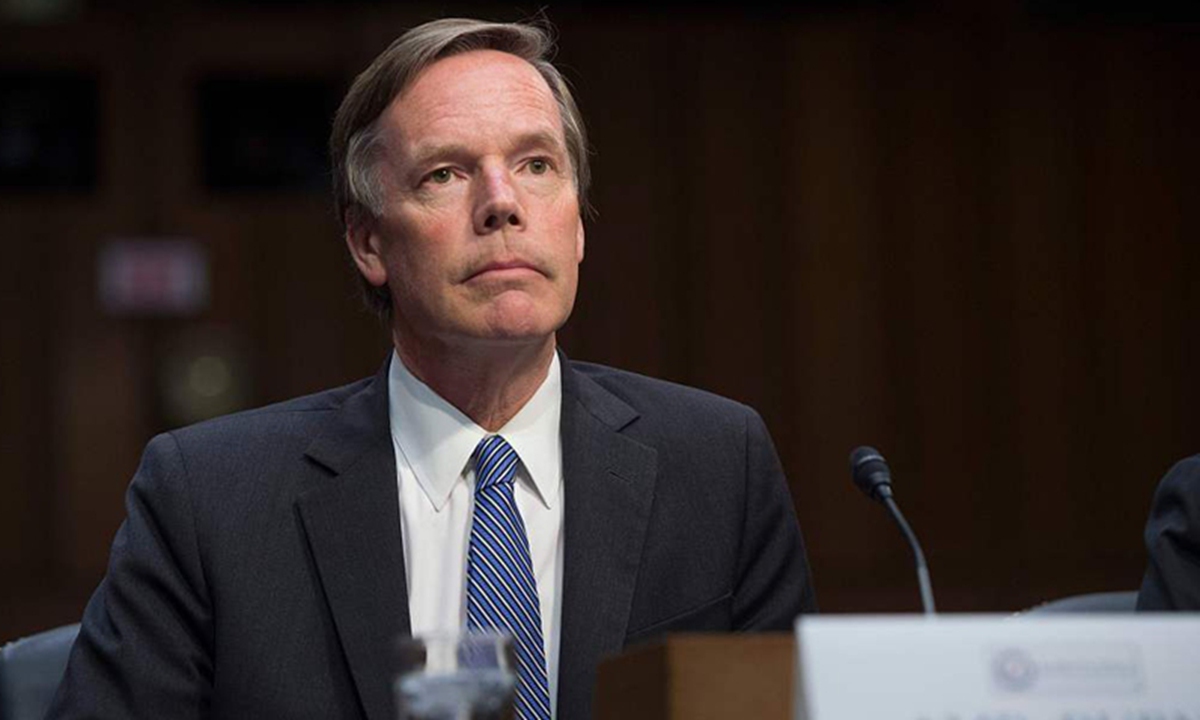
Nicholas Burns Photo:CFP
The US Commerce Department and the US Department of the Treasury on Thursday imposed sanctions on a number of Chinese firms and institutions, groundlessly citing the so-called human rights situation in China's Xinjiang Uygur Autonomous Region. The Senate on the same day passed legislation that would ban the import of a wide array of products from Xinjiang, and backed the confirmation of President Joe Biden's nomination of Nicholas Burns as ambassador to China. Such a "coincidence" has made many people doubt how much Burns would help promote China-US relations after he comes to China.
The position of US ambassador to China has been vacant for more than a year. This is a rare situation since the establishment of diplomatic relations between China and the US. It's widely regarded as proof of battered China-US relations. Burns uttered extremely bad remarks about China at a Senate hearing in October. He labeled China's policies in Xinjiang as "genocide," and trumpeted to make Taiwan "a tough nut to crack." These remarks have further reduced people's positive expectations for China-US relations.
Burns has done well in US political circles. When people talk about him, they often describe him as a "professional diplomat." Burns has a close personal relationship with Biden, and is considered to have "a direct link to the president." It should be noted that although Burns won the Congress' trust and support by displaying to lawmakers his tough attitude toward China, he will find he has to face the scrutiny of more than 1.4 billion Chinese people as soon as he arrives in the country.
As people's expectations for China-US relations have become very low, how much space can Burns have for work in the future? Will he become a puppet constrained by US domestic politics and therefore become unpopular among the Chinese people? This will be a severe test before him.
More importantly, after the US launched intensive crackdowns against China in recent years, the Chinese people's views about the US have undergone an overall change. Chinese vigilance against US ideological penetration has also increased unprecedentedly. Moreover, the US embassy hasn't left a good impression on the Chinese public in recent years. For instance, it posted fake pictures to smear Xinjiang region on Twitter and carried out some paid projects in China, which were regarded as an attempt to foster a "fifth column" in China. All these have deepened the estrangement between Chinese and American people. After Burns comes to China, if he has time to review the comments of Chinese netizens on the Weibo account of the US embassy in China, he will have a more comprehensive understanding of his situation.
Of course, it's not that there is nothing Burns can do. He will see in China how the US' past irrational and crazy crackdowns on China have eroded the goodwill of Chinese society toward the US. If he can report the facts to the White House, it may help enlighten US policymaking elites.
Burns is a "professional" diplomat. He knows better that regardless of his personal preferences, the core yardstick to judge his performance is whether there will be any positive development in China-US relations during his tenure. For China, we feel quite at ease. If Burns shows his professionalism in his work, we will respond to him accordingly. But if he follows Washington's radical politicians and takes an irrational attitude toward China, China will strike back without hesitation. The interaction between China and the US will reshape Burns' and Washington's understanding and attitudes toward China, and this process is generally consistent with the general trend of changes in the international landscape.




